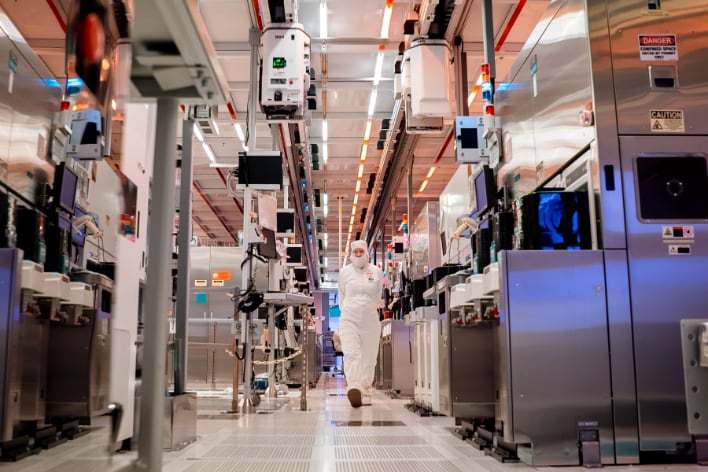Intel In Talks With TSMC And Samsung For Possible Future Chip Production
With this in mind, Intel has been looking at other options to ensure that it can stay competitive with perennial rival AMD, which has been kicking butt and taking names (and market share) with its Zen family of processorsin all market segments that Intel competes in. According to a new report from Bloomberg, Intel has reached out to both TSMC and Samsung to outsource at least some of its chip production in the future.

Intel is allegedly set to make an announcement within the next two weeks about its future fab plans, yet the report states that Intel has still not made a final decision on using TSMC production lines. Even if Intel does decide to partner with TSMC -- as AMD currently does -- it would still be at least 2023 before the first products start rolling off the assembly line.
While TSMC is the gold standard right now when it comes to 7nm and 5nm process nodes, Intel has also held preliminary talks with Samsung as well.
This, of course, isn't the first time that we've heard rumblings of Intel looking to outsource chip production to third-party fabs. Back during the company's Q 2020 earnings call, Intel delivered extremely disappointing news that its 7nm processors would be delayed, which caused INTC shares to plummet:
The company's 7nm-based CPU product timing is shifting approximately six months relative to prior expectations. The primary driver is the yield of Intel's 7nm process, which based on recent data, is now trending approximately twelve months behind the company's internal target.
At the time, Intel said that it was open to using "outside" foundries to make sure that its processor roadmap stays intact and on schedule. And Intel has been complimentary of TSMC in the past, noting in a leaked 2019 memo:
TSMC offers an advantage in terms of process node advancements. They're using their 7 nm process, and with that they get a per-core frequency bump and lower power, which means they can scale to more cores per processor.
At this time, it's not known what product lines could be shifted over to TSMC, or how taking on the burden of producing chips for Intel at-scale will affect its other customers. After all, TSMC has some high-profile clients like AMD and Apple, which are currently maxing out the company's fab capacity. However, following record 2020 earnings, TSMC is reportedly planning for a major investment in 5nm production and expansion (TSMC currently produces the 5nm Apple A14 Bionic SoC). Looking further out, TSMC is already working on an "evolutionary" 4nm process node in 2023 and an even smaller 3nm, potentially for the 2024/2025 timeframe.


